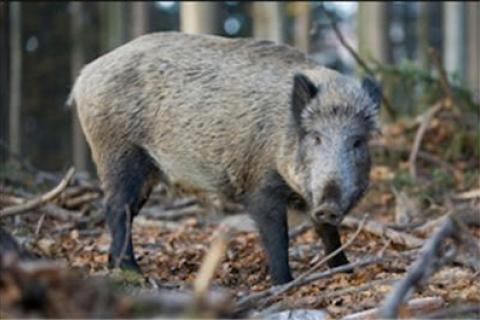
Wild boars are non-native species to the United States. They were introduced to the U.S. in the 1500s and now inhabit more than half the states in the country. Wild hogs are considered to be a harmful invasive species, as they cause damage to property and wildlife habitats, along with carrying infectious diseases that can spread to other animals and people.
Due to the destructive nature of wild hogs, hunters are encouraged to lend their skills to population control efforts. Many hunters willingly oblige, and it’s no wonder, as hunting wild boars can be a truly exhilarating experience. Landowners can help too, here is a guide from the USDA for managing wild hogs.
If you’re considering getting into hunting wild boars for the first time, however, there are definitely some safety tips to keep in mind. Check them out below:
Remember: Boars Can Be Very Dangerous. Throughout your hunting experience, keep in mind that hogs -- which can grow to be heavier than 300 pounds -- are much faster than you are, and they’re well-equipped to fight with their sharp tusks and hooves. They can be especially brutal and aggressive if they’re injured or looking after young. Exercise extreme caution.
 |
| Muddy The Bull Box Blind |
Hunt From A Safe Spot. For optimum safety, it’s best to hunt from a treestand, if possible. This gives you a good vantage point and keeps you out of reach from the tusks and hooves of the game you’re after. If you do choose to hunt from the ground, use a box blind such as Redneck hunting blinds, but make sure you’re near a tree that’s easy to climb in the case that you run into an emergency.
Avoid Catching Diseases. The diseases carried by wild boars are not only transferrable to other animals, but also to humans, as well.
One such disease is brucellosis, which can be passed if humans come into contact with blood, fluid or tissue from a carrier hog. Symptoms include fever, abdominal pain and headache. To avoid becoming sick, observe these instructions:
- Avoid contact with dead hogs or those that exhibit obvious signs of illness
- When field dressing a boar, wear disposable gloves and goggles; get rid of or carefully clean this protective gear promptly after finishing the field dressing
- Wash hands thoroughly
- Use proper food handling and cooking practices when butchering and cooking a hog
- Contact your state health department for information about brucellosis. Here is a guide from the CDC on wild hog hunting.
Make Sure You’re Not Alone. Bring along a cell phone or walkie talkie, or better yet, a hunting partner. Any of these will be helpful to you in the case that a run-in with a wild boar occurs.
Follow these tips to make your hunt much more safe and enjoyable. And if you have any of your own hog hunting safety tips, be sure to share them with us in the comments section.
- 12861 views

